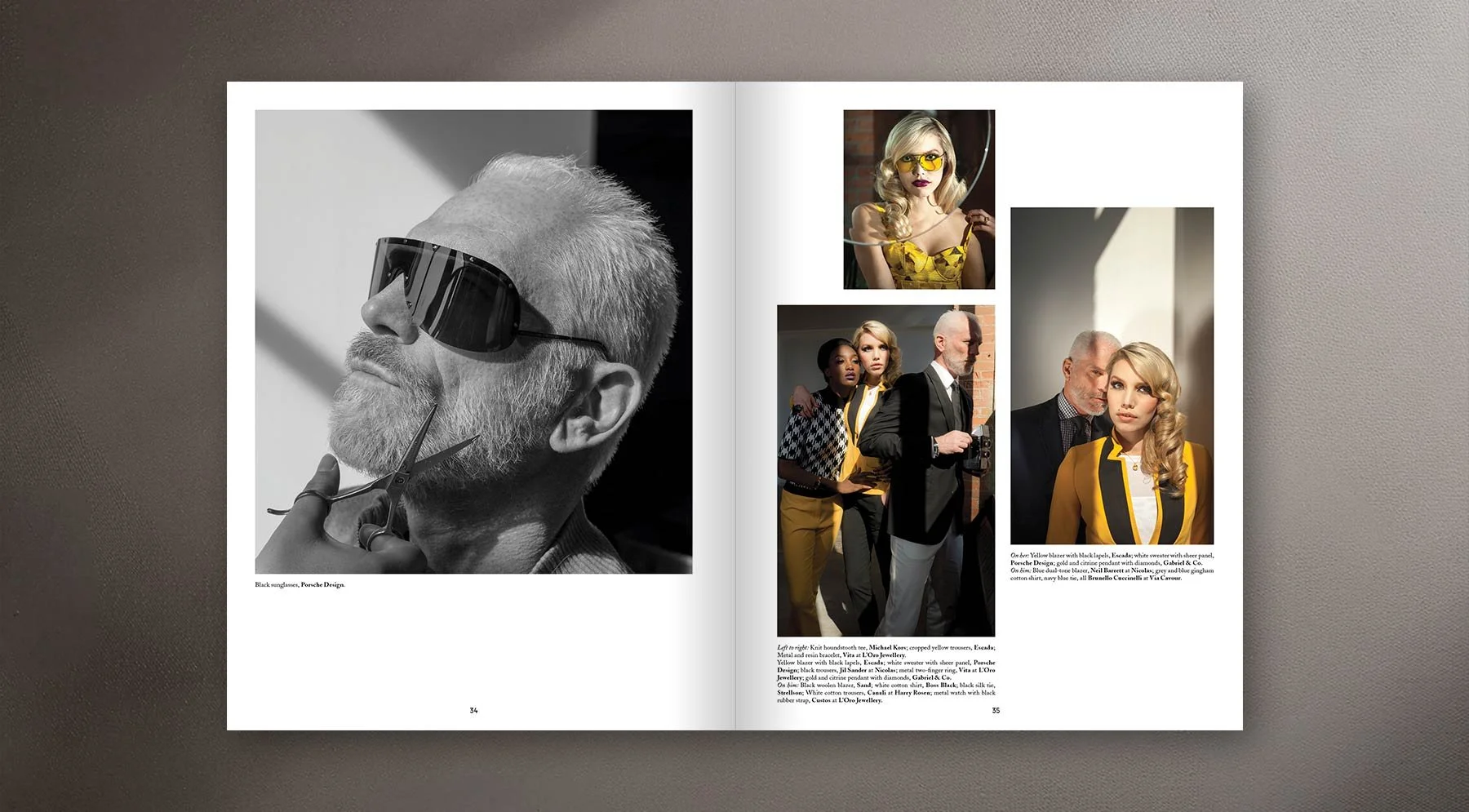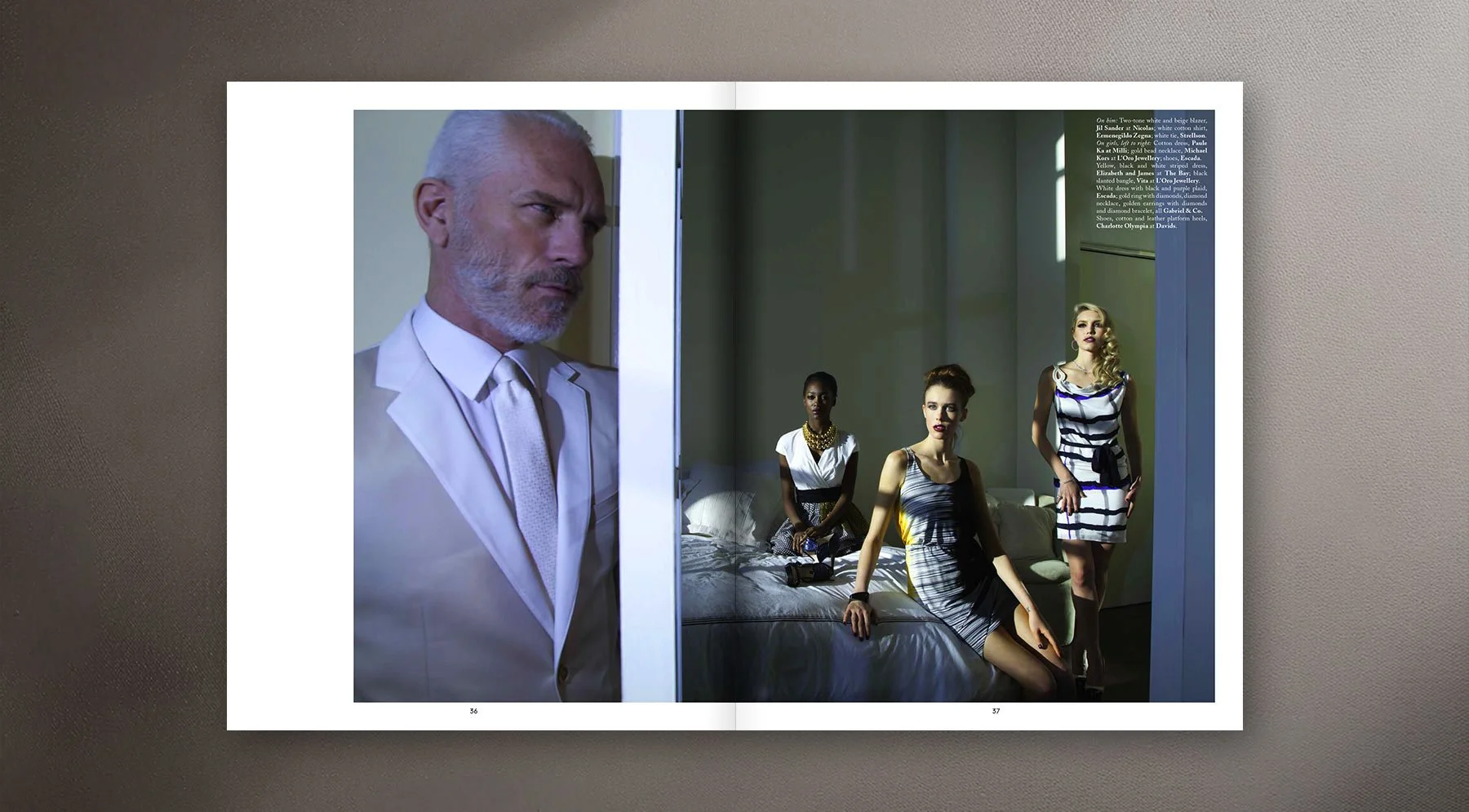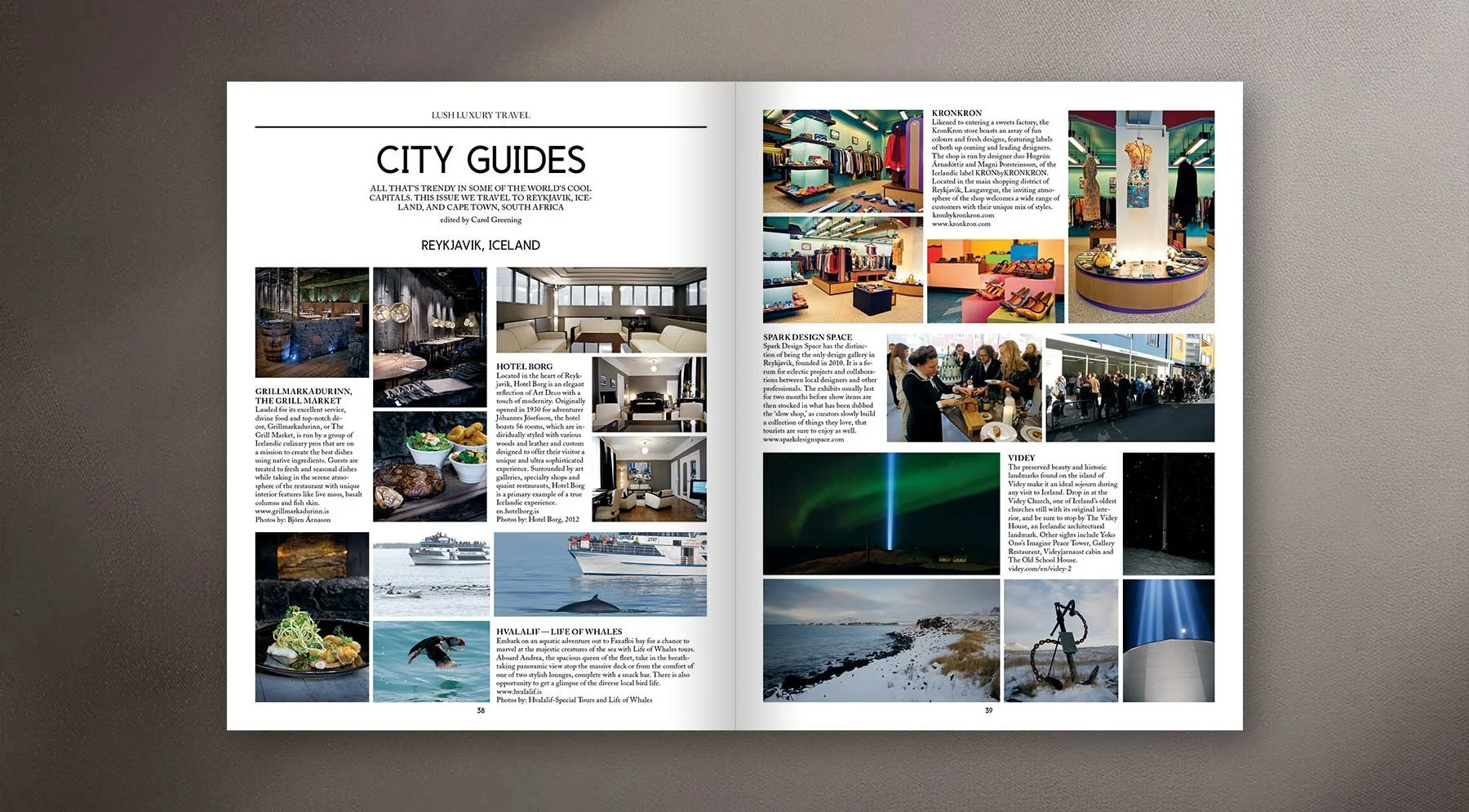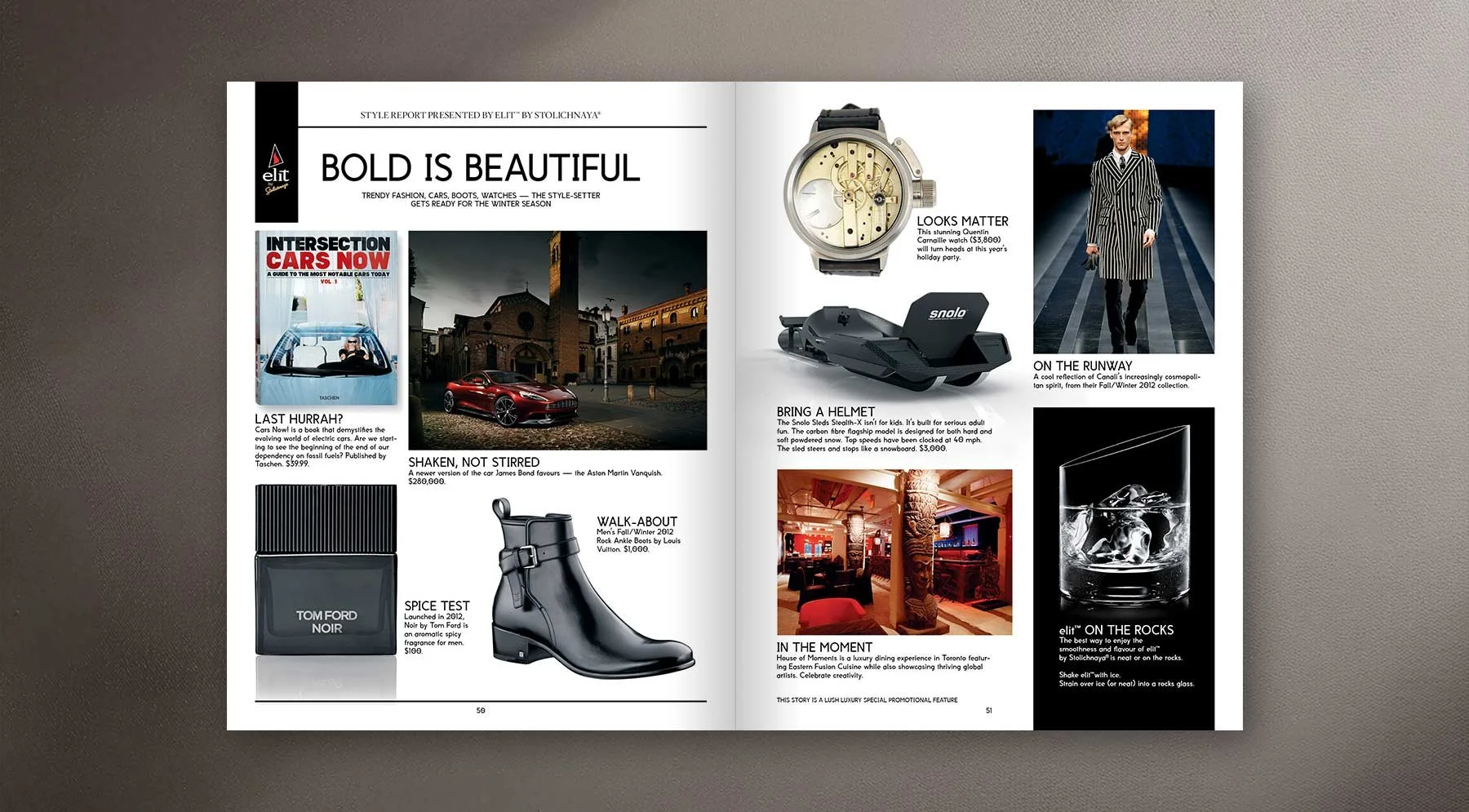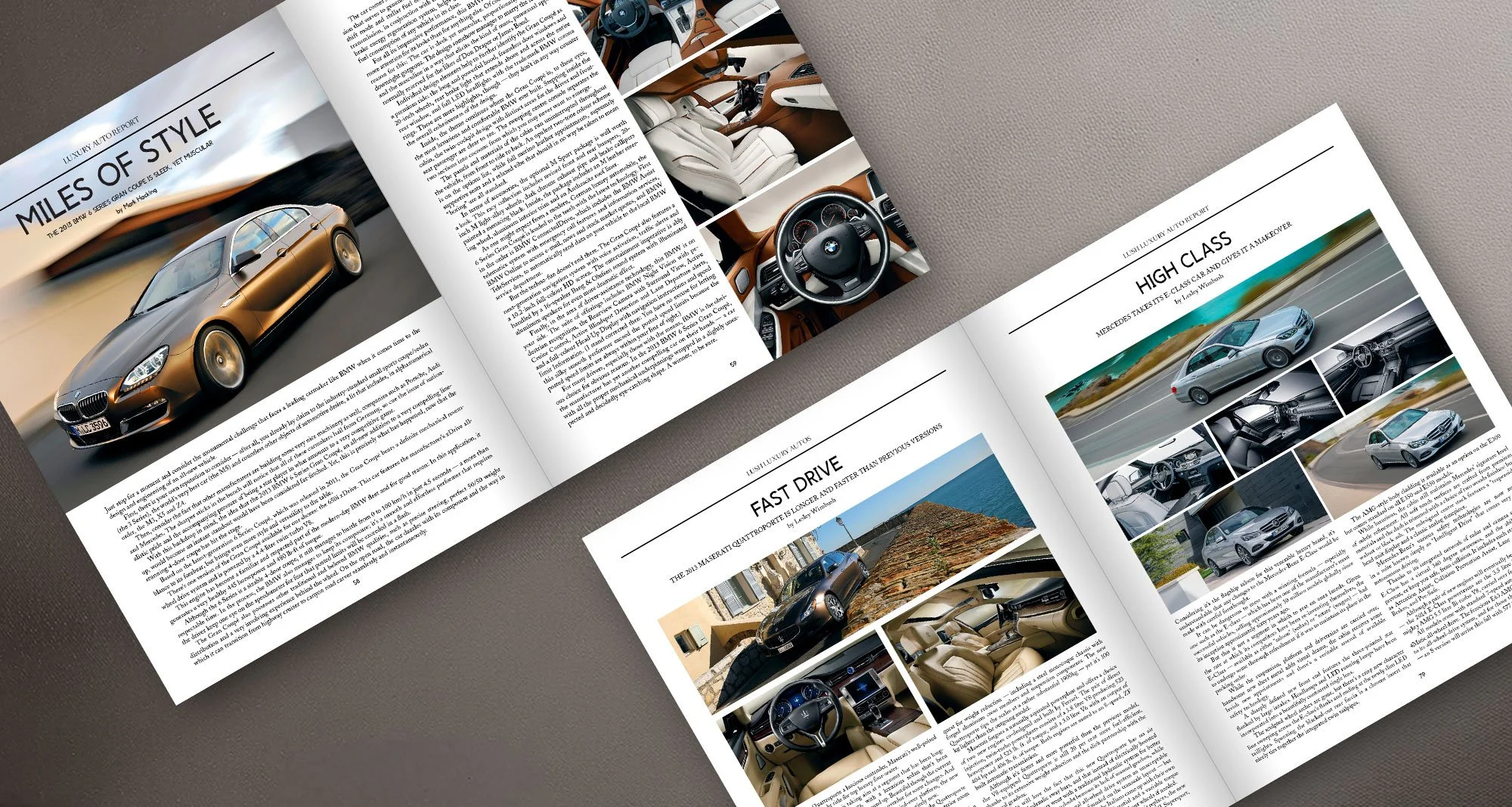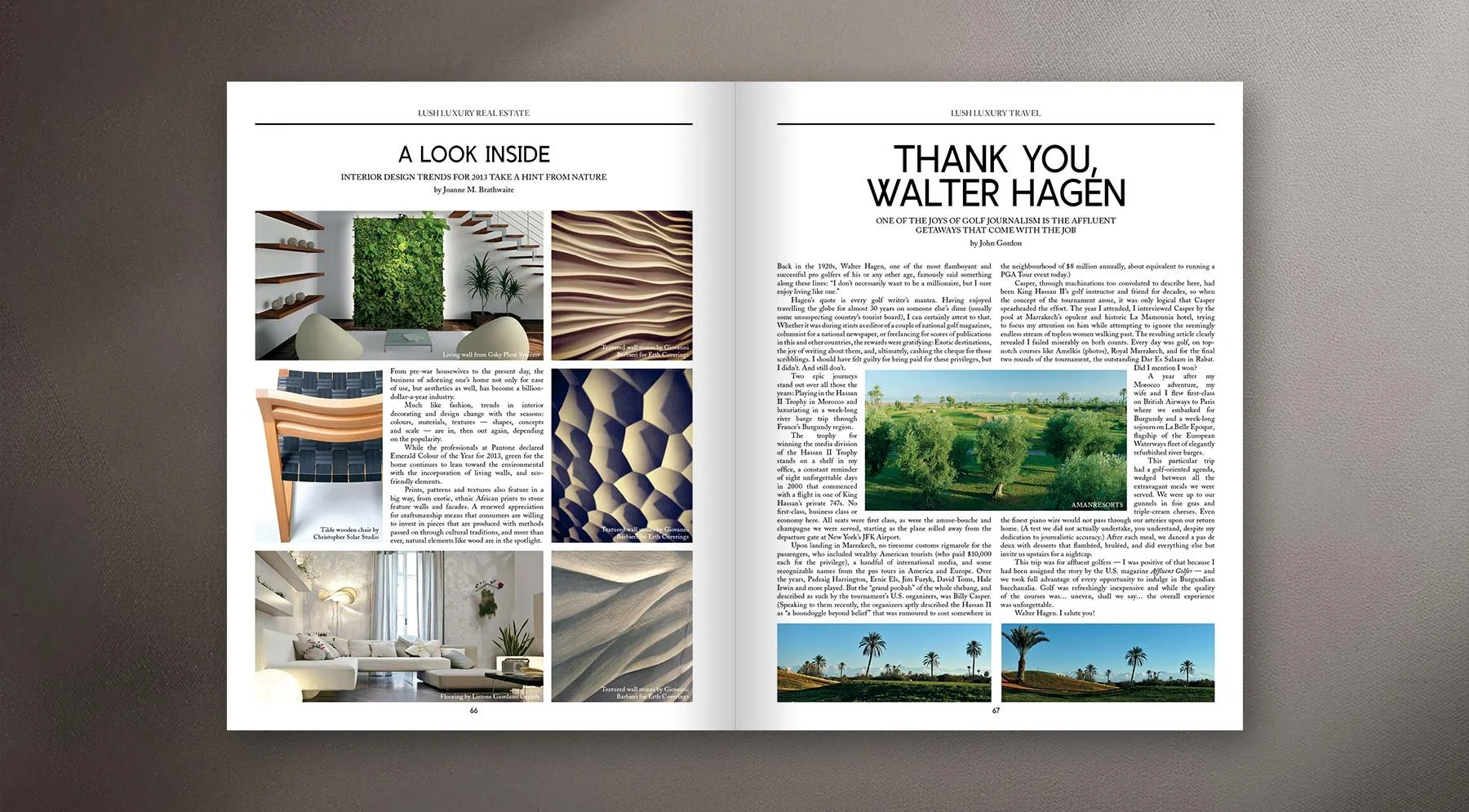LUSH LUXURY MAGAZINE
Magazine Editorial Redesign
Role: Lead Editorial Designer
2013
Lush Luxury Magazine required a refined editorial redesign that elevated its visual identity while supporting a wide range of fashion, travel, and cultural content. The work focused on introducing a more cohesive typographic system and tighter grid structures to replace previously inconsistent layouts, while maintaining flexibility for diverse editorial formats. The resulting design delivered a polished, high-end reading experience, improved readability, and established a repeatable framework that streamlined production and ensured consistency across future issues.
Client: Tommy Everett, Mark Keast
Team: Art Director, Writers, Editors
Skills: Editorial Design, Typography, Layout Design, Print Production
Tools: Adobe InDesign, Photoshop


